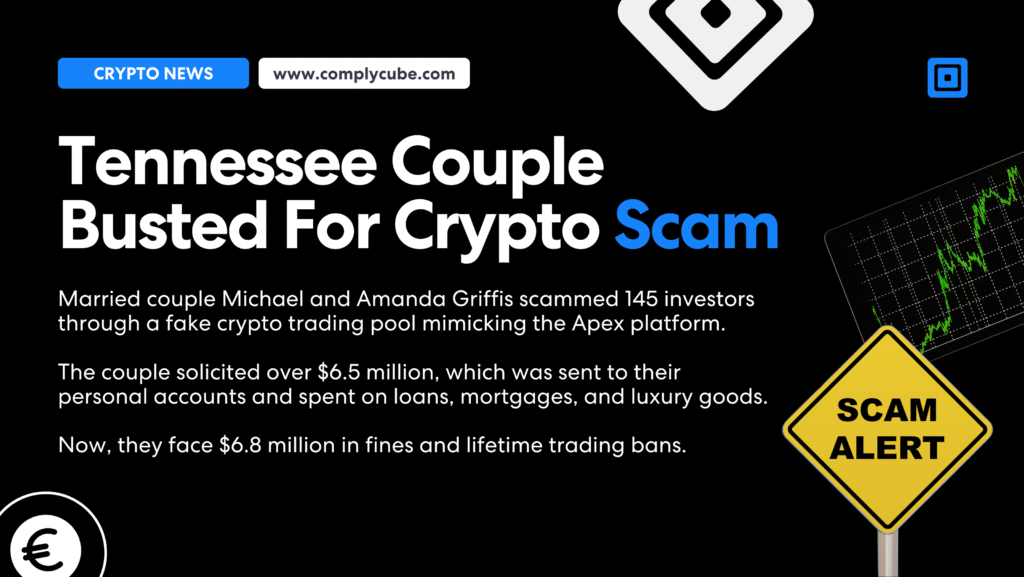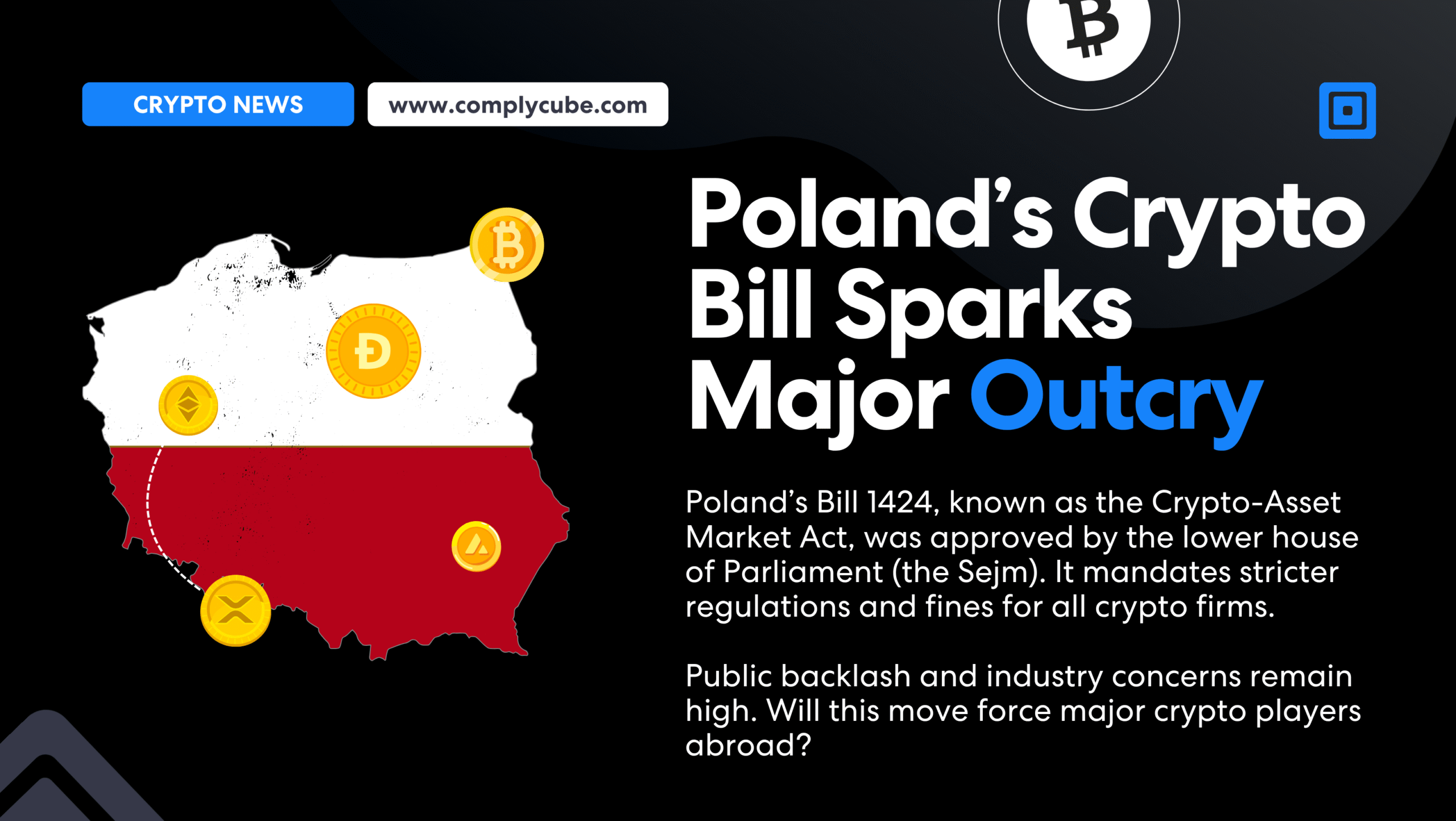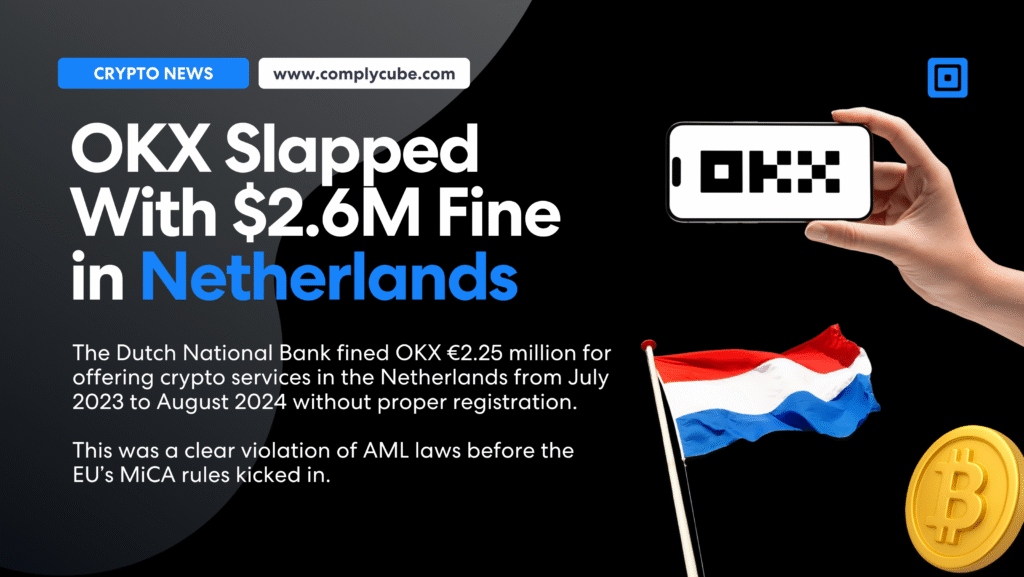👋 Welcome back to CryptoCubed!
The crypto industry is facing mounting pressure as governments all over the globe seek to introduce stricter regulations. In response, many crypto firms are relocating to countries with less regulatory oversight. This raises the question: could this be the downfall of crypto innovation in developed markets? In this month’s edition, we cover Australia’s $16.5 million warning to unlicensed crypto firms, KuCoin’s legal battle with Canada’s FINTRAC, the married couple who scammed over 145 crypto investors, the uproar sparked by Poland’s new crypto bill, and more! Stay tuned.

AUD $16.5 Million Fines for Non-Compliant Crypto Firms in Australia
On September 24th, Australia introduced a new draft legislation, mandating all digital asset and tokenized platforms to hold an Australian Financial Services Licence (AFSL). Under the AFSL, crypto firms are placed under heightened monitoring in relation to consumer protection policies, transaction processes, and internal cyber securities policies.

The license places crypto companies under Australia’s current financial services framework, aimed at harmonizing compliance for legacy cryptocurrency organizations with those of other financial institutions. The legislation establishes digital asset and tokenized custody platform, two new financial products under Australia’s Corporations Act.
Any firm covering trading, exchange, and safekeeping of digital assets will need to align with Australia’s Anti-Money Laundering (AML) and Counter-Terrorism Financing Act (CFT). This includes implementing effective Know Your Customer (KYC) framework, transaction monitoring, and submitting timely Suspicious Activity Reports (SARs). Any organization found non-compliant will face heavy penalties, including fines that can reach up to USD 10.9 million, or 10% of a company’s turnover.
For more on this story, click here.
Peken Global Limited Challenges FINTRAC’s $19.5 million Penalty
Peken Global, also known more commonly by the name KuCoin, has been fined CAD $19.5 million ($14 million) by The Financial Transactions and Reports Analysis Centre of Canada (FINTRAC) for breaching Canada’s Proceeds of Crime (Money Laundering) and Terrorist Financing Act. According to FINTRAC, KuCoin had breached three AML and CFT rules, ranging from minor to severe violations.

FINTRAC’s latest news release has mentioned that the firm failed to register as a foreign money services business, neglected reporting digital transactions amounting to or over CAD $10,000, and ignored suspicious transactions that had reasonable links to money laundering and other financial crimes. These breaches undermined Canada’s efforts to tackle illegal crimes and safeguard the financial services market.
Canada’s Anti-Money Laundering and Anti-Terrorist Financing Regime is in place to protect the safety of Canadians and the security of Canada’s economy.
KuCoin’s CEO, BC Wong, published a post on X, mentioning that the firm has submitted an appeal to the Federal Court of Canada, as it believed the penalty is “excessive”. In a statement with the Director and Chief Executive Officer of FINTRAC, Sarah Paquet mentions, “FINTRAC works with businesses to help them understand and comply with their obligations under the Act. We are also firm in ensuring that businesses continue to do their part, and we will take appropriate actions when they are needed.” The appeal is currently being looked into as KuCoin holds its position in maintaining its responsibilities under Canadian laws.
For more on this story, click here.
Fraudulent Crypto Scheme by Tennessee Couple Unveiled
Tennessee couple Michael and Amanda Griffis have been fined $6.8 million for scamming over 145 people under a counterfeit platform aimed to replicate the Apex Trading Platform. Starting from 2021 to 2023 the duo operated a fraudulent commodity pool called “Blessings of God Thru Crypto.” At least 145 investors were scammed through promises of huge returns.

The U.S. Commodity Futures Trading Commission (CFTC) first discovered “Blessings of God Thru Crypto” after investigations traced Ponzi-like payments made to a few investors. According to the CFTC, the couple ran a real estate company and were able to use their connections in the company to target investors. At least $6.5 million was received and deposited into the couple’s personal bank accounts, where they made payments for mortgages, loans, and luxury items.
If an investment opportunity seems too good to be true, it almost certainly is, for you and anyone you bring along.
The married couple are required to pay up to $5.5 million in restitution to defrauded victims and over $1.3 million civil monetary penalty, totaling over $6.8 million in fines. Additionally, they were banned from the trading market permanently. Charles Marvine, Acting Chief of the Division of Enforcement’s Retail Fraud and General Enforcement Task Force states, “This case is a stark warning to be cautious about whom you trust with your money, if an investment opportunity seems too good to be true, it almost certainly is, for you and anyone you bring along.”
For more on this story, click here.
Poland Faces Backlash as Crypto-Asset Market Act Receives Approval
Poland’s Parliament sends Bill 1424 to the Senate on September 26, mandating heightened oversight and regulation for crypto firms. The Bill aims at aligning Poland’s regulation more closely with the European Union’s MiCA Act. Under the Bill, all Crypto Asset Service Providers (CASPs) must submit a document detailing their company structure, internal and external compliance controls, and AML processess before earning a license to operate in Poland.

The Parliament has received massive backlash from the public, with many citizens mentioning that this could lead to broader economic impact on the country. Industry experts have warned that this overly restrictive regulation will force major Polish crypto players to relocate and cause large tax revenue losses to the country. According to the Polish Financial Supervision Authority (KNF), non-compliance will lead to up to 10 million Polish zloty fines (approximately USD 2.75 million) and two year’s jail time for those without license.
Polish companies are already preparing a plan B: moving their operations abroad and operating in Poland on a passporting basis
Piotr Bień, co-founder of Polish Blockchain and Crypto Chamber of Commerce (IGBiNT) mentions, “The Ministry of Finance’s draft is 104 pages long, for comparison, Germany’s is 78 pages long, and some countries’ are just a few pages long. The most controversial issues include high license feeds, blocking of exchange websites by officials, and imprisonment for operating without a license. Polish companies are already preparing a plan B: moving their operations abroad and operating in Poland on a passporting basis.”
For more on this story, click here.
OKX To Pay €2.25 Million in Fines to the Netherlands’ Bank
Aux Cayes Fintech Co. Ltd, operating as OKX, is facing a €2.25 million fine (approximately USD $2.64M) from the De Nederlandsche Bank (DNB). The fine was issued because the DNB found that OKX offered crypto services across the Netherlands from 2023 to 2024 without registration, violating local AML laws. In the Netherlands, all crypto firms must register with the DNB under the country’s Anti-Money Laundering and Anti-Terrorist Financing Act (WWFT) framework.

Prior to the EU’s Markets in Crypto Assets (MiCA) framework, crypto firms needed to register individually with local regulators such as DNB to operate in the Netherlands. With MiCA in force, any firm with a valid MiCA license can operate across Europe without separate licenses. OKX has released a statement mentioning that it is working closely with DNB and maintains that the Netherlands is a key area for the business.
For more on this story, click here.
Time for Your Monthly CryptoCubed Poem
So you’ve made it to the end of our newsletter. It’s time to enjoy a little satire, worthy reader, you’ve earned it.
🔥THE CRYPTO CUBED POEM: SEPTEMBER🔥
Regulations are tightening, sharp and clear,
Crypto firms now face increased fear.
Australia’s warning makes waves wide,
While KuCoin battles Canadian courts in stride.
Poland’s bill sparks loud dissent,
Voices rise where change is sent.
Developed markets raise the stake,
But will innovation bend or make a break?
Click here to learn more about how ComplyCube supports cryptocurrency firms in maintaining global AML and KYC compliance.
Stay tuned for our next newsletter and have a great day ahead!




